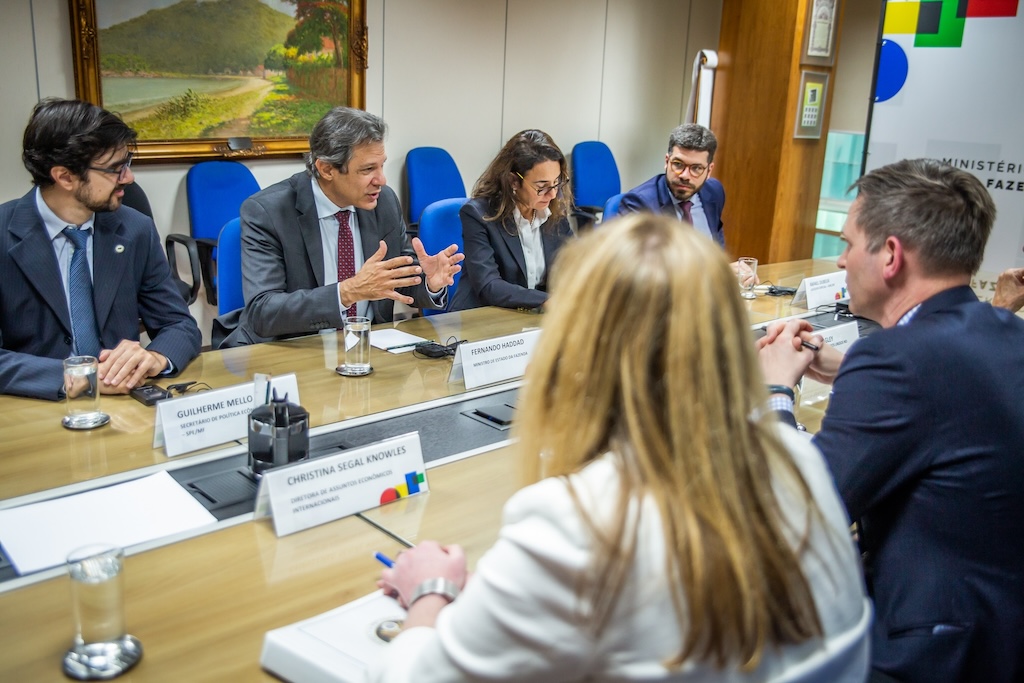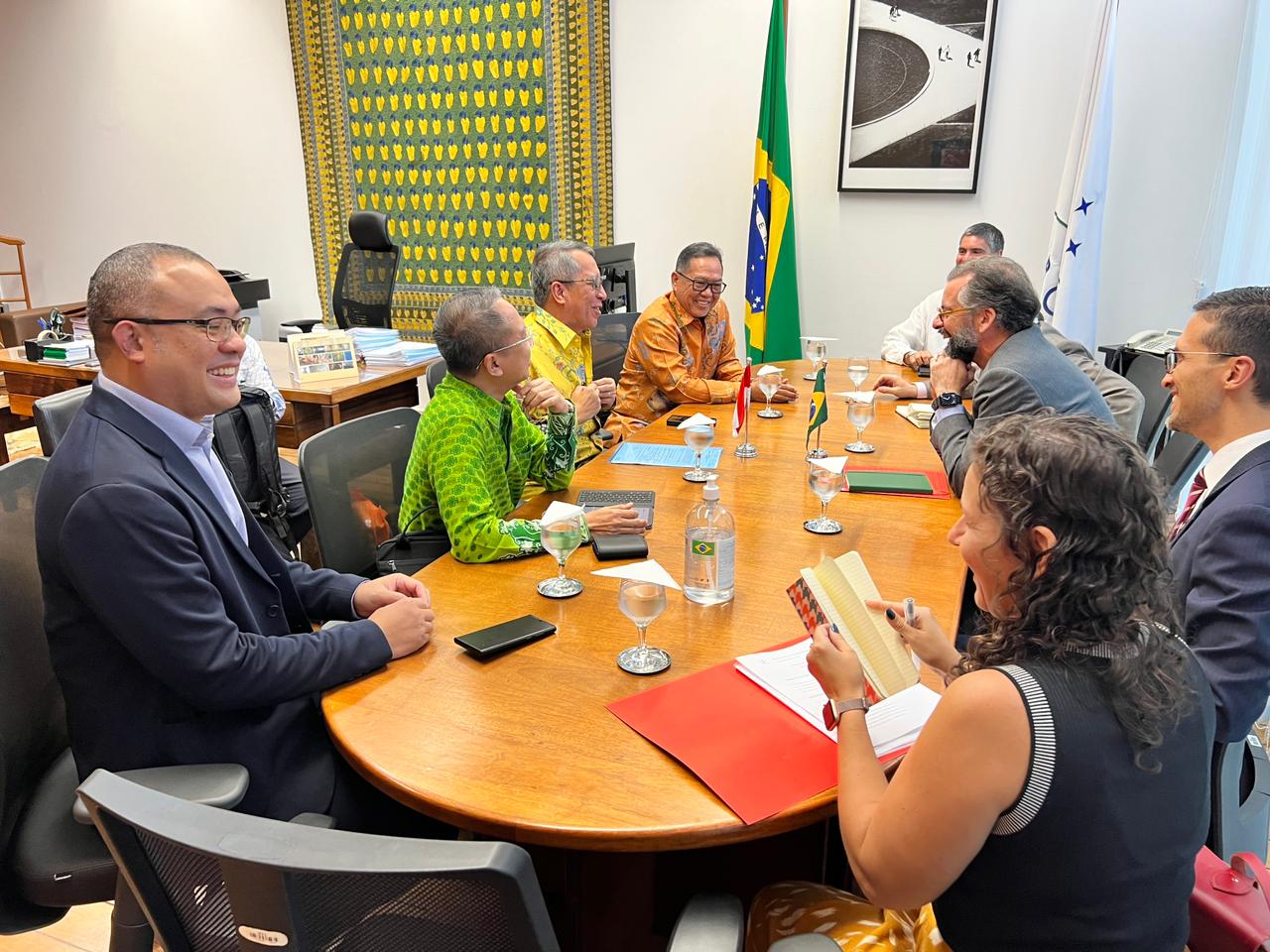Strengthening dialogue: bilateral and multilateral meetings highlight G20 dynamics
As well as Sherpa and Finance Track meetings—between all member countries—bilateral (between two countries) and multilateral (between three or more) meetings are being held towards building consensus and closing agreements

To gather authorities from around the world in one single place renders a unique opportunity to discuss high-level topics and important issues that are of concern to all of them. In the case of the G20, this opportunity is even more special, since authorities from the world's greatest economies come together for a short period of time.
Making the most of the occasion to address specific topics and common agendas is a common practice during international meetings—and the first G20 meeting under the Brazilian presidency was no exception. The bilateral and multilateral meetings were an important moment for advancing issues, agreements and strategic cooperation during the G20 working week in Brasília between December 11 and 15.
Bilateral and multilateral Sherpa Track meetings
Beyond meetings for negotiations towards the G20 Leaders' Declaration—to be adopted in Rio de Janeiro on November 18 and 19, 2024—part of the Sherpas’ work is precisely to meet member country representatives to discuss issues that are key to all those involved. In this sense, the Brazilian Sherpa Ambassador Mauricio Lyrio carried out an intense agenda with authorities and held a meeting with Global South countries. The following emerging market economies were present: Argentina, Angola, South Africa, Saudi Arabia, China, India, Indonesia, Mexico, Türkyie and Russia, as well as the African Union.
The Brazilian Sherpa also met with counterparts from the U.S., South Korea, Japan and Portugal. The foreign representatives committed to working towards results that are connected to the Brazilian presidency's priorities—especially the Global Alliance against Hunger and Poverty, and the Global Mobilization against Climate Change.

Bilateral and multilateral aspects of the Finance Track
Finance Minister Fernando Haddad met with U.S. Sherpa for the G20 and deputy advisor for National Security Michael Pyle. Tatiana Rosito—who coordinates the Finance Track—took the lead in other bilateral meetings on the topic with delegations from Singapore, Japan, Indonesia, China and France. Rosito also met with the U.S. Treasury Undersecretary Jay Shambaugh and World Bank representatives.
Rosito highlighted that Brazil's agenda for the G20 presidency is ambitious, and that one of its priorities is to reduce inequality—which must be addressed from the beginning of the meetings in a sustainable way. Alongside Brazil, the representative from Japan reaffirmed the importance of solid collaboration in the G20 to promote financial stability and sustainable economic growth. The conversation with U.S. Undersecretary Jay Shambaugh highlighted ways of strengthening multilateral development banks; the importance of increasing climate financing; and the need to address low-income countries’ debts.
What are bilateral and multilateral meetings?
Bilateral meetings are those held between two entities, whether representatives of nations, parties or companies. Meetings are considered multilateral when they involve at least three entities. These meetings discuss specific topics of interest to both parties. Depending on the level of formality, they may or may not result in subsequent agreements or cooperation treaties.

